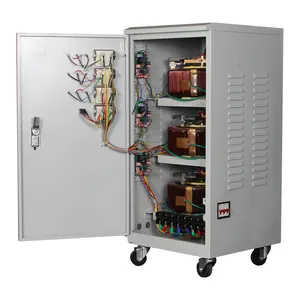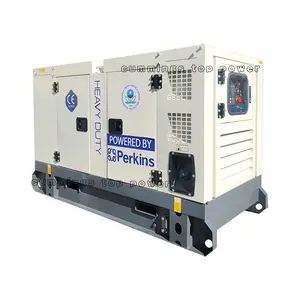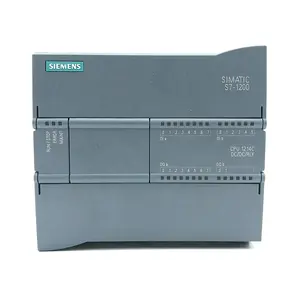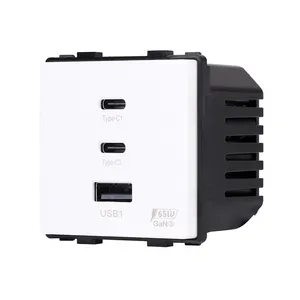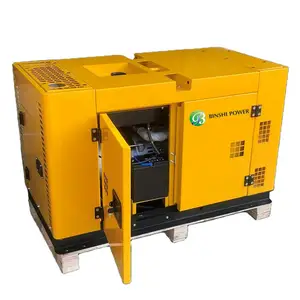Phổ biến trong ngành của bạn

Nhà Máy bán hàng trực tiếp ABB 266gst/AST loạt máy phát áp lực tuyệt đối được sử dụng để đo áp suất tuyệt đối
550,00 US$ - 600,00 US$
Đơn hàng tối thiểu: 1 Cái


ABB ban đầu trong kho ngắt mạch điện áp cao thiết bị điện ngắt mạch S204-C2 ABB ngắt mạch
Sẵn sàng vận chuyển
6,98 US$ - 7,00 US$
Đơn hàng tối thiểu: 10 Cái
Vận chuyển mỗi chiếc: 3,63 US$


Hns203dl Dali-2 khép kín ứng dụng điều khiển 120-277V Dali Dip chuyển đổi Dali xe buýt thiết lập con người vi sóng cảm biến chuyển động
16,90 US$ - 18,20 US$
Đơn hàng tối thiểu: 1 Cái
Vận chuyển mỗi chiếc: 5,31 US$


Gốc Đức chuyển đổi cảm biến KD-2060-ABOA/Ni KD0012 cho IFS
19,90 US$ - 99,00 US$
Đơn hàng tối thiểu: 1 Mẫu Anh


ABB ban đầu trong kho ngắt mạch điện áp cao thiết bị điện ngắt mạch S204-C16 ABB ngắt mạch
Sẵn sàng vận chuyển
6,98 US$ - 7,00 US$
Đơn hàng tối thiểu: 10 Cái
Vận chuyển mỗi chiếc: 3,08 US$


KAI-1020-ABB-FD-BA cảm biến CLCC-64 ban đầu KAI-1020 KAI-1020-ABB-FD-BA
0,10 US$ - 1,00 US$
Đơn hàng tối thiểu: 1 Cái

Cảm biến dòng ES500-9661 mới (điều kiện đã sử dụng) ES500-9661
100,00 US$ - 200,00 US$
Đơn hàng tối thiểu: 1 Cái


GSYUASA Figaro Nhật Bản Cảm Biến Oxy O2 Cảm Biến Sử Dụng Cho ABB Oxygen Analyzer
0,001 US$ - 0,01 US$
Đơn hàng tối thiểu: 1 Cái

Chất lượng cao ban đầu ABB ttf300 cảm biến nhiệt độ ttf300 Field-Mount nhiệt độ Transmitter
449,00 US$ - 589,00 US$
Đơn hàng tối thiểu: 1 Bộ


Chincan A630 a670 tự động Abbe khúc xạ 1.30000-1.70000nd với hiệu suất cao CCD cảm biến
3.600,00 US$ - 4.350,00 US$
Đơn hàng tối thiểu: 1 Bộ
Vận chuyển mỗi chiếc: 51,09 US$
Các tìm kiếm liên quan:

ABB máy phát áp lực 2600t 266hsh 4-20mA với Hart thông tin liên lạc phổ biến ABB cảm biến
360,00 US$ - 996,00 US$
Đơn hàng tối thiểu: 1 Cái

ES300-9655 ES300-9643 Original Disassembling Machine ABB Current Sensor
7,10 US$ - 11,40 US$
Đơn hàng tối thiểu: 1 Cái

8 Beams Cảm Biến Hàng Rào Hồng Ngoại Chủ Động Cho Hệ Thống Báo Động
42,00 US$ - 60,00 US$
Đơn hàng tối thiểu: 1 Cặp

Gốc rosemounte 3900 mục đích chung Ph/ORP cảm biến 3900-01-12 3900-6769262
430,00 US$
Đơn hàng tối thiểu: 1 Cái

Chi phí thấp 4-20mA/0-10V/0-5V Bộ chuyển đổi áp suất/cảm biến máy phát chân không
Sẵn sàng vận chuyển
40,00 US$ - 42,00 US$
Đơn hàng tối thiểu: 2 Cái
Vận chuyển mỗi chiếc: 9,45 US$

Thành phần điện tử cung cấp mạch tích hợp cảm biến từ tính MLX90363KDC-ABB-000-RE bom danh sách
2,45 US$ - 3,43 US$
Đơn hàng tối thiểu: 10 Cái

Hiện tại cảm biến DC AC hiện tại Cảm biến kẹp trên 5A 600A 150A chia lõi hiện tại biến áp chia CT
2,00 US$ - 24,80 US$
Đơn hàng tối thiểu: 5 Cái

New 100% Original vegason 61 cảm biến siêu âm cho liên tục đo lường mức độ trong kho giá tốt
1.300,00 US$ - 5.000,00 US$
Đơn hàng tối thiểu: 1 Cái

Máy Phát Điện Nam Châm Vĩnh Cửu Máy Phát Điện Diesel 50kVA Với Cảm Biến Áp Suất Dầu
4.900,00 US$ - 5.200,00 US$
Đơn hàng tối thiểu: 1 Bộ

2 tấn agv robot sản xuất cuối cùng trợ lý với cảm biến từ tính và omni bánh xe, trung quốc động cơ servo
9.000,00 US$ - 10.000,00 US$
Đơn hàng tối thiểu: 1 Đơn vị

Máy Phát Thông Minh Thiết Kế Phổ Biến Cảm Biến Áp Suất Rs485 Kỹ Thuật Số Vi Sai Gió Vi Sai
35,00 US$ - 48,00 US$
Đơn hàng tối thiểu: 1 Đơn vị

Phụ Tùng Thay Thế Van Nạp Đóng Nắp Cảm Biến Ánh Sáng Đầu Cho Máy Nạp Chất Lỏng Monoblock
2,00 US$
Đơn hàng tối thiểu: 1 Bộ

Cảm biến lưu lượng khí đường phố thông minh sn53d
10,00 US$
Đơn hàng tối thiểu: 10 Bộ
Vận chuyển mỗi chiếc: 200,20 US$

Sul815 bán chạy nhất siêu âm mở kênh cảm biến lưu lượng áp dụng cho khí quyển không nổ bằng chứng lưu lượng kế đo lưu lượng
Sẵn sàng vận chuyển
300,00 US$
Đơn hàng tối thiểu: 1 Cái
Vận chuyển mỗi chiếc: 30,81 US$

Dụng Cụ Đo Áp Suất 2088 Máy Phát Áp Suất 4-20ma Rs485 Cảm Biến Áp Suất
35,00 US$ - 59,00 US$
Đơn hàng tối thiểu: 1 Cái

Chống cháy nổ 3 trong 1 Ph Orp Temp. Cảm biến chất lượng nước cho nước sạch xử lý nước thải trung hòa hóa chất
Sẵn sàng vận chuyển
680,00 US$ - 750,00 US$
Đơn hàng tối thiểu: 1 Cái
Vận chuyển mỗi chiếc: 23,38 US$

Đa chức năng kết nối máy tính tích hợp cảm biến 5MP b302e500 kính hiển vi sinh học hai mắt kỹ thuật số
665,00 US$ - 690,00 US$
Đơn hàng tối thiểu: 1 Đơn vị

Động Cơ Servo L5 Máy Cắt Khuôn Có Cảm Biến Tự Động
1.300,00 US$ - 1.800,00 US$
Đơn hàng tối thiểu: 1 Cái

1500a đo biến hiện nay, abb biến hiện ES300 9643, cảm biến hiện tại biến áp ac
22,96 US$
Đơn hàng tối thiểu: 10 Cái

Thức ăn cảm biến cho gia cầm Gà thức ăn tập trung Máy viên máy cho thức ăn chăn nuôi gà
3.793,00 US$ - 6.243,00 US$
Đơn hàng tối thiểu: 1 Bộ

Miếng Dán Cho Ăn Tự Động/Máy Cắt Vinyl Laser Có Cảm Biến Quang A3 + Giấy
4.450,00 US$ - 6.375,00 US$
Đơn hàng tối thiểu: 1 Bộ

Accuratcy 0.2% FS máy phát áp lực cảm biến nhỏ đầu vào bể Tường Cảm biến mức 16mm Đầu dò đường kính cảm biến mức
170,00 US$ - 175,00 US$
Đơn hàng tối thiểu: 1 Cái

Cảm biến áp suất 4-20mA giá Hart 0-10 Bar kỹ thuật số áp lực cao nước máy phát áp lực không khí
25,00 US$ - 43,00 US$
Đơn hàng tối thiểu: 2 Cái

Cảm biến MLX90363LDC-ABB-000-SP IC chip 2024 nhiệt độ cảm ứng cảm biến điện tử ban đầu SOIC-8 linh kiện mlx90363ldc
0,10 US$ - 1,00 US$
Đơn hàng tối thiểu: 5 Cái

MLX90374GVS-ABB-300-RX Integrated circuit Electronic Components Plate machine interface motion sensor and position sensor
Sẵn sàng vận chuyển
0,10 US$
Đơn hàng tối thiểu: 30 Cái

Chất lượng cao ban đầu ABB nhiệt độ Transmitter tth200 tth300 cảm biến nhiệt độ
299,00 US$
Đơn hàng tối thiểu: 1 Cái
Vận chuyển mỗi chiếc: 617,20 US$

Ban đầu rosemount công nghiệp cảm biến nhiệt độ cao 214cthermocouple và máy phát 148
150,00 US$
Đơn hàng tối thiểu: 1 Cái

RoHS ban đầu pga900arhhr 36-vqfn giao diện cảm biến và máy dò giao diện IC chip linh kiện điện tử mạch tích hợp
0,10 US$ - 0,40 US$
Đơn hàng tối thiểu: 10 Cái
Các danh mục hàng đầu
Giới thiệu về cảm biến abb
Việc bảo vệ mạch điện bất kể là cho mục đích dân dụng hay thương mại giờ đây trở nên thuận tiện và đơn giản hơn với sự hỗ trợ của các phụ kiện cảm biến abb trên Alibaba.com. Các sản phẩm này là sản phẩm hàng đầu và được sản xuất để chăm sóc tối đa các kết nối điện và mạch điện của bất kỳ tài sản nào. Các sản phẩm được cung cấp tại đây không chỉ có khả năng trình diễn thành thạo mà còn được chứng nhận và bền vững trước mọi loại hình sử dụng khắt khe, do đó đảm bảo tuổi thọ cao hơn. Nhận các sản phẩm này từ các nhà cung cấp và nhà bán buôn cảm biến abb hàng đầu và đáng tin cậy trên trang web với mức giá tuyệt vời.
Bất kể kết nối lớn hay nhỏ, những cảm biến abb này đều có đủ khả năng xử lý tất cả các loại mạch phức tạp và bảo vệ chúng chống lại tất cả các loại nhiễu. Các sản phẩm này được điều khiển từ xa và có thể hoạt động thông qua điện thoại thông minh. Các danh mục sản phẩm khác nhau trên trang web được trang bị tất cả các tính năng mới nhất và công suất khác nhau để xử lý các yêu cầu điện áp và dòng điện riêng biệt. Các sản phẩm này được làm bằng nhựa cao cấp, bạc, đồng để nâng cao hiệu suất.
Duyệt qua cảm biến abb đa dạng trên Alibaba.com và chọn từ nhiều sản phẩm tùy theo yêu cầu. Các phụ kiện này có khả năng chịu nhiệt độ, được trang bị an toàn quá dòng, bảo vệ quá tải, bảo vệ điện áp dao động và đi kèm với vỏ bọc để ngăn các mạch tiếp xúc với các nhiễu bên ngoài. Chúng đi kèm với tính năng tự động bật hoặc tắt kịp thời và có thể được điều khiển bằng giọng nói với Trợ lý Google hoặc Alexa. Người ta cũng có thể tìm thấy các sản phẩm có tính năng tự động đóng lại và cũng có sẵn cho pin năng lượng mặt trời.
Kiểm tra nhiều loại cảm biến abb trên trang web và mua các sản phẩm phù hợp với yêu cầu và ngân sách. Có thể truy cập tùy chỉnh và người tiêu dùng có thể đặt hàng chúng dưới dạng sản phẩm OEM. Các dịch vụ sau bán hàng cũng được cung cấp trên các sản phẩm chọn lọc tùy theo nhu cầu.
Bất kể kết nối lớn hay nhỏ, những cảm biến abb này đều có đủ khả năng xử lý tất cả các loại mạch phức tạp và bảo vệ chúng chống lại tất cả các loại nhiễu. Các sản phẩm này được điều khiển từ xa và có thể hoạt động thông qua điện thoại thông minh. Các danh mục sản phẩm khác nhau trên trang web được trang bị tất cả các tính năng mới nhất và công suất khác nhau để xử lý các yêu cầu điện áp và dòng điện riêng biệt. Các sản phẩm này được làm bằng nhựa cao cấp, bạc, đồng để nâng cao hiệu suất.
Duyệt qua cảm biến abb đa dạng trên Alibaba.com và chọn từ nhiều sản phẩm tùy theo yêu cầu. Các phụ kiện này có khả năng chịu nhiệt độ, được trang bị an toàn quá dòng, bảo vệ quá tải, bảo vệ điện áp dao động và đi kèm với vỏ bọc để ngăn các mạch tiếp xúc với các nhiễu bên ngoài. Chúng đi kèm với tính năng tự động bật hoặc tắt kịp thời và có thể được điều khiển bằng giọng nói với Trợ lý Google hoặc Alexa. Người ta cũng có thể tìm thấy các sản phẩm có tính năng tự động đóng lại và cũng có sẵn cho pin năng lượng mặt trời.
Kiểm tra nhiều loại cảm biến abb trên trang web và mua các sản phẩm phù hợp với yêu cầu và ngân sách. Có thể truy cập tùy chỉnh và người tiêu dùng có thể đặt hàng chúng dưới dạng sản phẩm OEM. Các dịch vụ sau bán hàng cũng được cung cấp trên các sản phẩm chọn lọc tùy theo nhu cầu.
